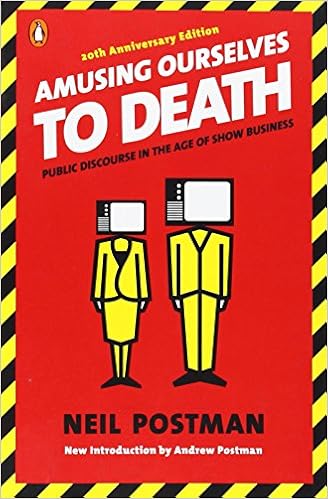Amusing Ourselves to Death (1985)

In Amusing Ourselves to Death, Neil Postman offers one of the most influential critiques of mass media in the 20th century. Published in 1985, the book argues that television has transformed public discourse — from politics to religion to journalism — into a form of entertainment.
Postman draws a powerful contrast between George Orwell’s 1984 and Aldous Huxley’s Brave New World. Orwell feared we would be oppressed by those who ban books. Huxley feared there would be no reason to ban books because no one would want to read them. Postman asserts that Huxley was right — that our culture is not controlled by force, but by pleasure, amusement, and distraction.
“We were keeping our eye on 1984. When the year came and the prophecy didn’t, thoughtful Americans sang softly in praise of themselves. But we had forgotten that alongside Orwell’s dark vision, there was another, slightly older, slightly less well-known, equally chilling: Aldous Huxley’s Brave New World.”
Key Ideas from the Book
- The Medium is the Metaphor: Each form of media reshapes not only what we say, but how we think.
- Politics as Entertainment: Television turns serious political debate into image-driven performances.
- Education as Show Business: Learning becomes entertainment, not inquiry, through televised teaching.
- Public Discourse Diminished: The news is designed to amuse, not to inform.
Legacy and Impact
Decades after its publication, Postman’s arguments remain strikingly relevant in the age of social media and 24-hour entertainment news. His ideas foreshadowed the challenges of the internet era — where attention, not truth, is the currency of communication.
Amusing Ourselves to Death continues to be taught in media studies, journalism, and cultural theory classes around the world. It stands as both a warning and a call to reclaim meaningful discourse in a world increasingly dominated by entertainment.